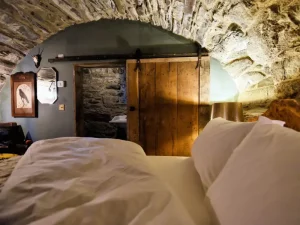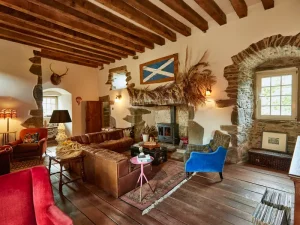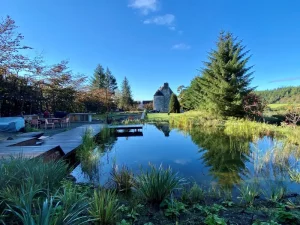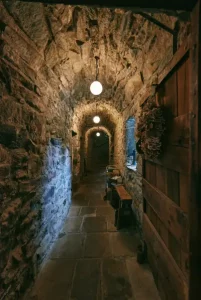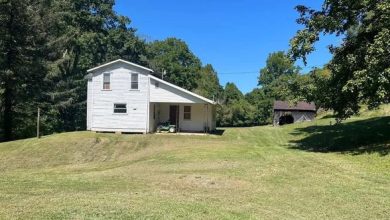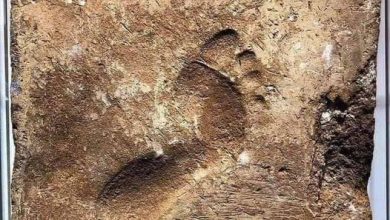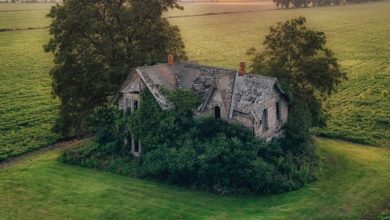In Scotland, a millennial couple transformed a medieval castle into a boutique guesthouse with a sustainable ethos.
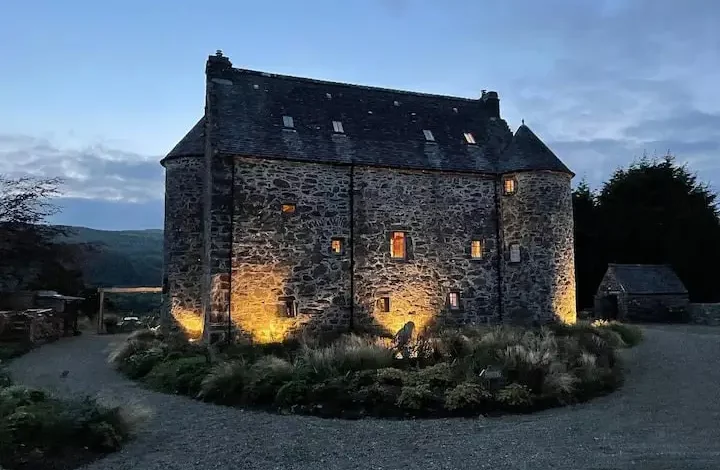
In 2014, Stef Burgon and Simon Hunt went on a road trip in Scotland that changed the direction of their lives. They lived and worked in Dubai but were struck by the untapped potential in Scotland.
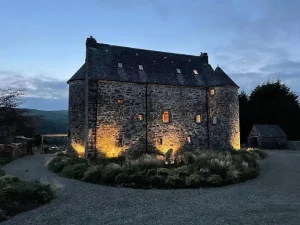
“We traveled around Scotland looking for a castle to stay in, and we stayed in a couple, and it was just disappointing,” Hunt said. “It’s so disappointing when it looks like a castle from the outside, and then you get inside, and it’s not a castle anymore.”
Shortly after, they came across a listing in the Daily Mail for a £375,000, or about $476,000, castle on the west coast of Scotland. After jumping on a plane to see it, the couple offered £331,780, or about $421,225, for the property originally built in 1550.
Burgon and Hunt eventually quit their jobs in Dubai and moved into the castle, where they spent £225,000, or about $285,656, on years of repairs and renovations. They didn’t have hospitality backgrounds but always planned to share the historic property with guests.
Though the process had its challenges, they said it was ultimately worth it. After 2021, they moved to a nearby cottage and started listing Kilmartin Castle exclusively as a guesthouse. They are now taking bookings as far ahead as 2026 and said the rental strategy has allowed them to dedicate time to other projects, such as starting a lime-paint company called House of Lime.
Guests staying at the five-bedroom castle can enjoy all it offers, including the wild swimming pool, vegetable gardens, and locally sourced “Michelin star-style food” the in-house chef, William Hammer, serves in a glass house steps away from the castle.
Since the opening of Kilmartin Castle, the site has welcomed retreats and weddings; the couple also plans to host an artist residency program in 2025. Their castle was also included in The New York Times’ 52 Places to Go article in 2023.
“We’ve been doing this job for five years now, and I’ve never felt more financially secure. And I used to have an actual job, or we both did, but you never get a day off,” Hunt said.
“When you’re working for yourself, you don’t mind at all,” Burgon added.
